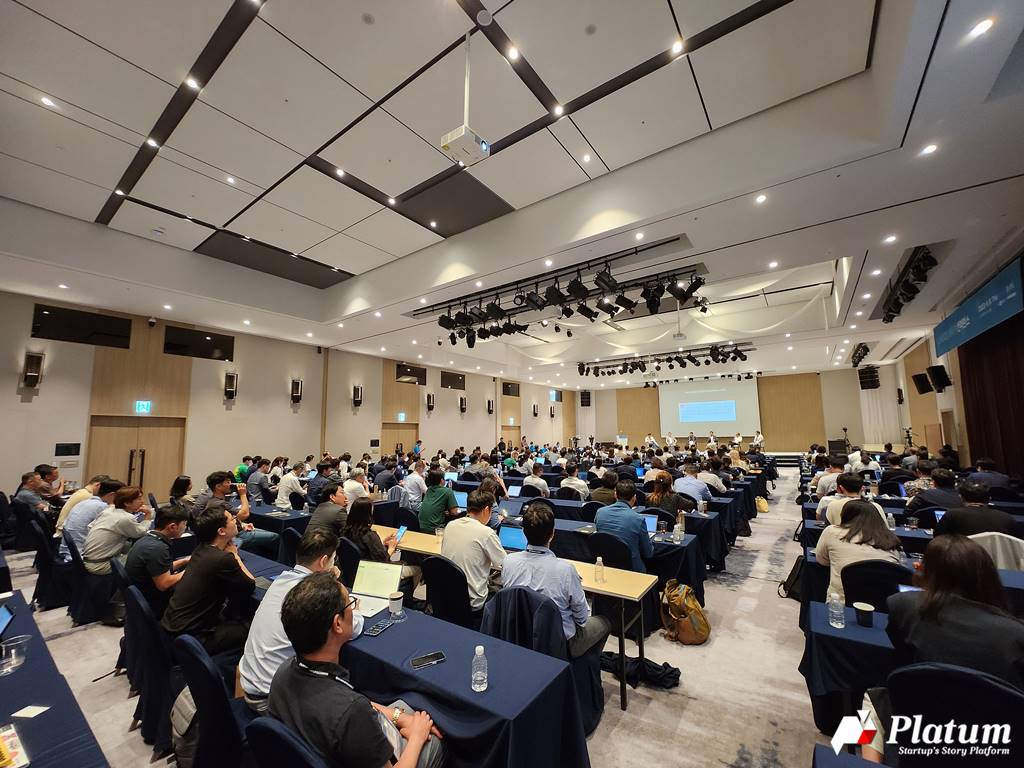
On-site at the 2023 Startup Ecosystem Conference, to be held in Jeonju on the 8th and 9th. @Platum
Where there is a good startup ecosystem, there are more opportunities for business success. There are three elements that make up a quality startup ecosystem. The first is talent: promising entrepreneurs and their teams. The second is social capital, or financial backing. In business, financial backing is essential. For a startup, it’s like a welcome rain, like pouring water to prime the pump. The third is ecosystem awareness. A lack of public understanding of the entrepreneurial ecosystem can lead to friction. With these three factors working in positive synergy, the global startup ecosystem has grown and evolved by leaps and bounds.
Since last year, however, the global startup ecosystem has undergone a correction. Startups that were previously focused on growth with an emphasis on future value are now required to prove their profitability. In particular, the Ukraine-Russia war, which started before COVID-19 had even ended, had a butterfly effect and sent the global economy into a cold spell. This had a negative impact on the flow of funds to startups looking to use investment as a springboard for growth. The higher the stage of investment, the harder it is to attract funding, and the worse the recession feels.
The Startup Ecosystem Conference 2023 was held to analyze the core issues of the global startup ecosystem and propose future development directions.
Yong Hyun Kim, CEO of Envisioning Partners, Hangjip Choi, Managing Director of Startup Alliance, Chang Kim, former CEO of Tapas Media, Pierre Joo, CEO of Korelya Capital Korea, and Sang-Rae Jo, CEO of Platum, were among the speakers and panelists at the “Startup Ecosystem Conference 2023” that opened at the Lahan Hotel in Jeonju on March 8. They discussed the current state of the global startup ecosystem, including the U.S., Europe and China.
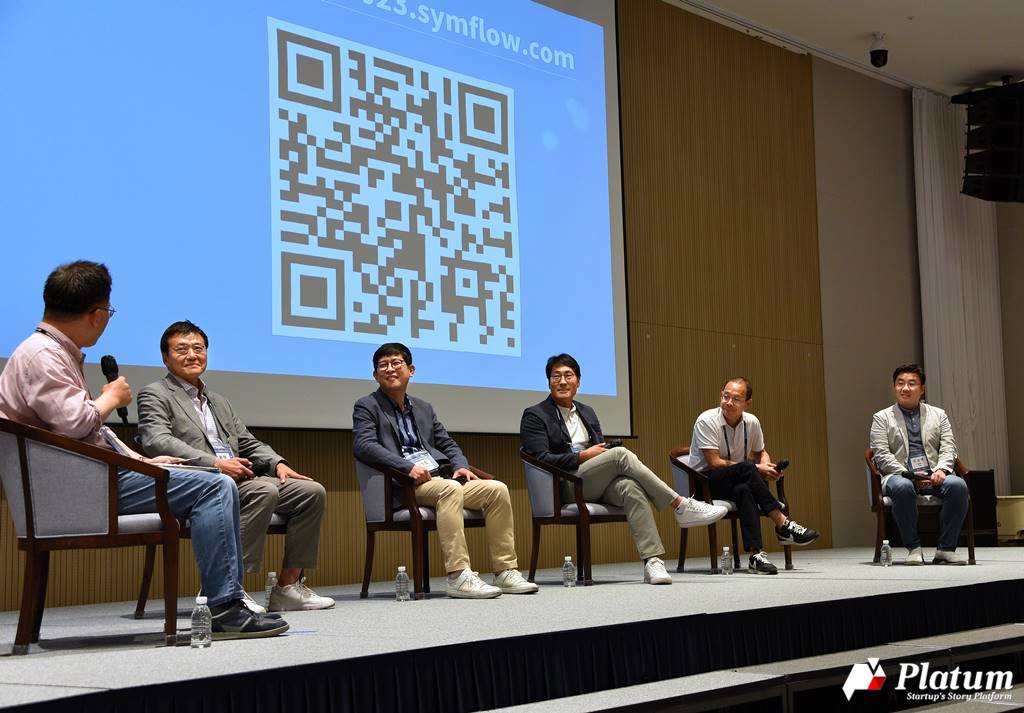
Experts discuss the global startup ecosystem at the Startup Ecosystem Conference. (From left) Dohyeon Kim, Chairman of Startup Alliance, Yong Hyun Kim, CEO of Envisioning Partners, Hangjip Choi, Managing Director of Startup Alliance, Chang Kim, former CEO of Tapas Media, Pierre Joo, CEO of Korelya Capital Korea, Sang-Rae Jo, CEO of Platum ⓒPlatum
Yong Hyun Kim, CEO of Envisioning Partners, a venture capital firm focused on impact investing, said, “We are in the midst of a new normal due to the confluence of economic downturns from developed to emerging markets, tensions in international affairs, and volatility in financial markets. The financial market crisis in 2023, including the closure of Silicon Valley Bank, has made everything more difficult. A chain reaction is underway from the weakest link, and it is a financial pandemic. Liquidity problems, a crisis of confidence in the financial system and a shrinking of experimental capital have adversely affected the entire venture ecosystem”.
In addition, he said. “There’s a lot of money piled up in venture capital, but it’s not as easy to unlock as it was in the past. Companies that are profitable and cash flow generative are getting funded, but it has become very difficult for companies that are not to get funded. The strategy of increasing market size based solely on future growth potential is no longer valid. It’s not about looking to the future, it’s about being able to monetize quickly. Startups have to adapt to that.
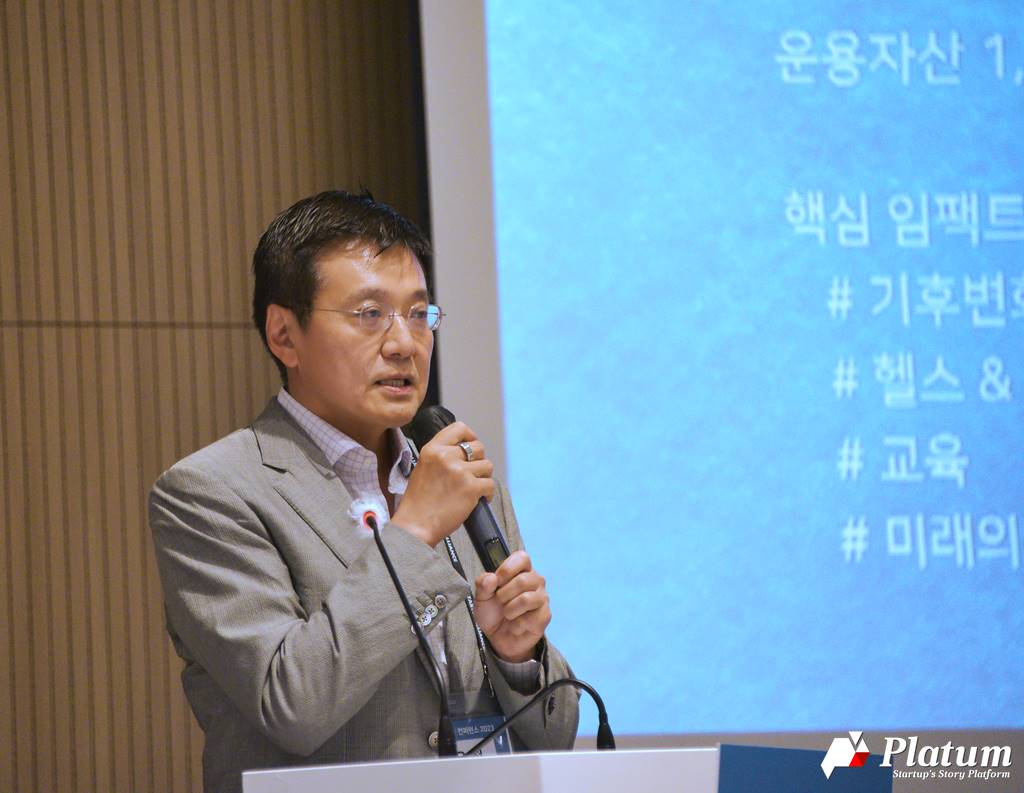
Yong Hyun Kim, CEO of Envisioning Partners @Platum
Kim emphasized the need to prepare for a new globalization. “We need to create a structure that goes beyond the low-growth structure. We need to specifically target markets like the U.S., China, Russia and so on. It’s becoming a time when you have to do it, even if you don’t want to think about it. You have to do localized globalization, and you have to think about the structure from the very beginning of the business. For example, Sequoia Capital, a venture capital (VC) firm in Silicon Valley, recently decided to spin off its China business and operate it as an independent company. The analysis is that the decision was made in response to the intensifying U.S.-China conflict and the new normal.
He said that even in times of crisis, there are sectors that stand out. “Generative AI, cybersecurity and climate tech are areas that are less affected by tough economic conditions,” he said. Climate tech isn’t just an issue for a few companies, it’s a shift that all startups need to think about. We need to think about how to respond and create opportunities.”
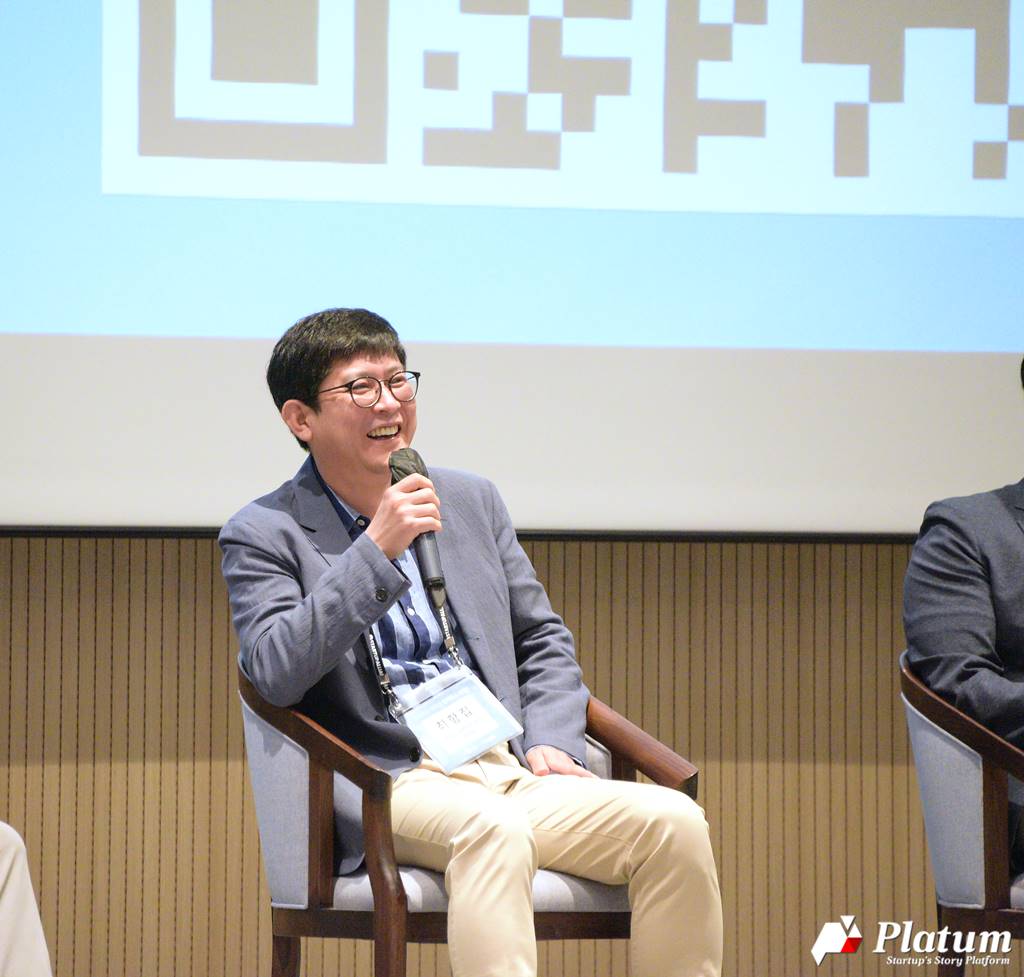
Hangjip Choi, Managing Director of Startup Alliance @Platum
Hangjip Choi, managing director of Startup Alliance, said the startup ecosystem is at an “innovation inflection point,” analyzing that “investment has been excessive in 2021, not less. “Right now, there’s a lot of VC money in reserve, and it’s a question of when it will be released,” he said. “That can be hopeful for startups, but it can also be a powder keg for investors. It’s no longer a high-risk, high-reward investment; it’s a higher-risk, lower-reward investment. A lot of investors can’t afford to invest. “That said, we are still seeing an increase in both investment funds and startups. There are some startups that have gotten bigger, but it’s time to look at their staying power.
Choi emphasized the importance of diversity for a healthy ecosystem. “65% of all companies and 77% of venture capitalists are located in the Seoul metropolitan area. For an ecosystem to be successful, there needs to be both inbound and outbound. But inbound is weak in Korea. Industry and gender are also heavily skewed toward manufacturing and men. Research shows that diversity goes beyond innovation and is linked to profitability. To create a quality ecosystem, we need intentional diversity.
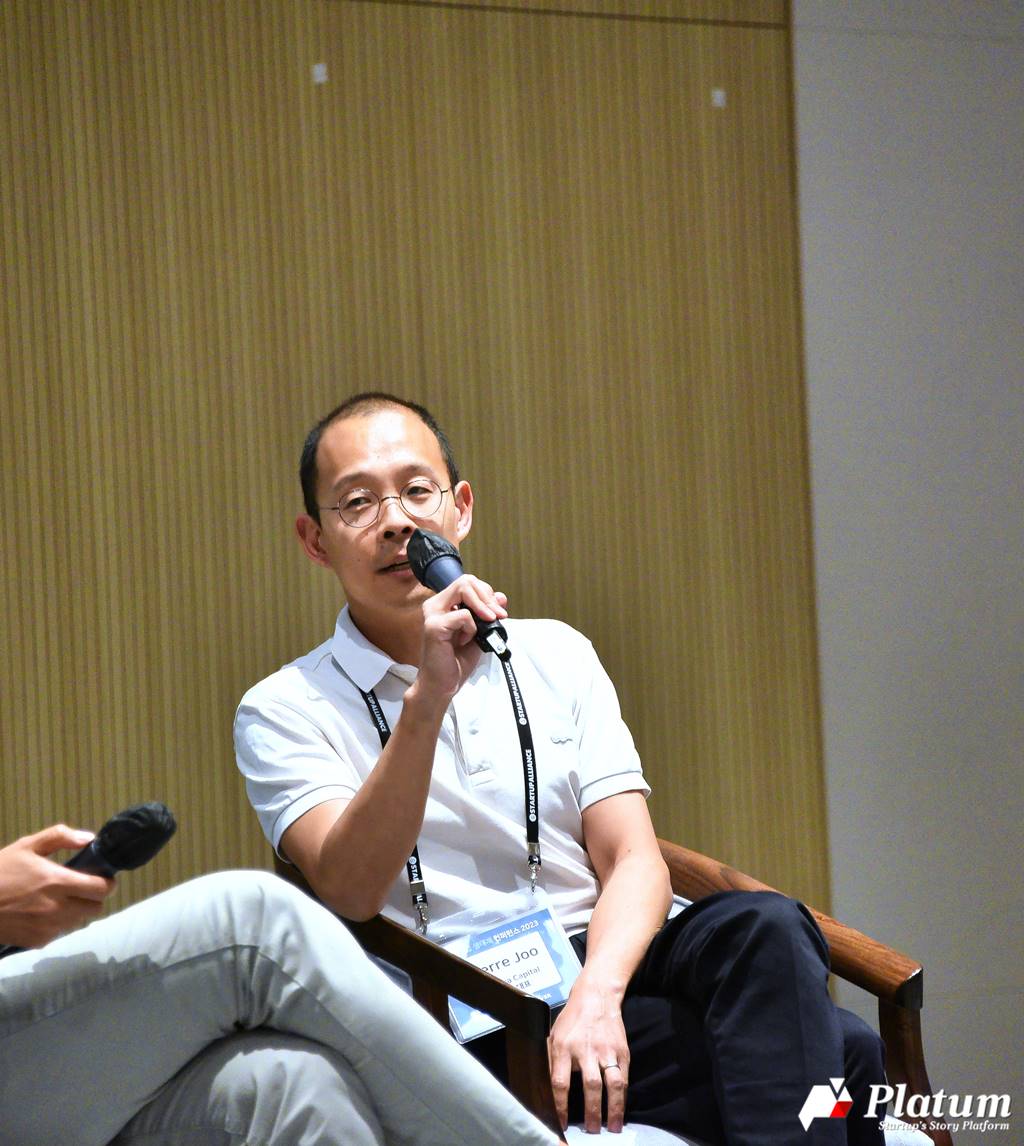
Pierre Joo, CEO of Korelya Capital Korea, @Platum
Pierre Joo, CEO of Korelya Capital Korea, presented investment trends and developments in Europe. He said, “European startup investment reached a record high in 2021. The cumulative investment reached €100 billion. Although 2022 was down from the previous year, it was still more than double the amount invested in 2020.”
“Early-stage European startups are holding up well, with many showing growth in 2022. The number of unicorns is a third lower than the previous year, but similar to 2017-2019. However, similar to Korea, there are not many exits and valuations are lower than before. European startups are also taking a wait-and-see approach, waiting for better times,” he said.
According to Joo, Europe is leading the way in early-stage impact investing. “With $84 billion in dry powder held by European VCs and growth funds, the impact investing sector has emerged. Impact unicorns are also emerging in the UK and Sweden,” he said.
“Europe is a big market, but it’s difficult because of the complexity of different languages and country-specific regulations,” said Pierre Joo, explaining why Korean startups don’t often consider entering Europe.
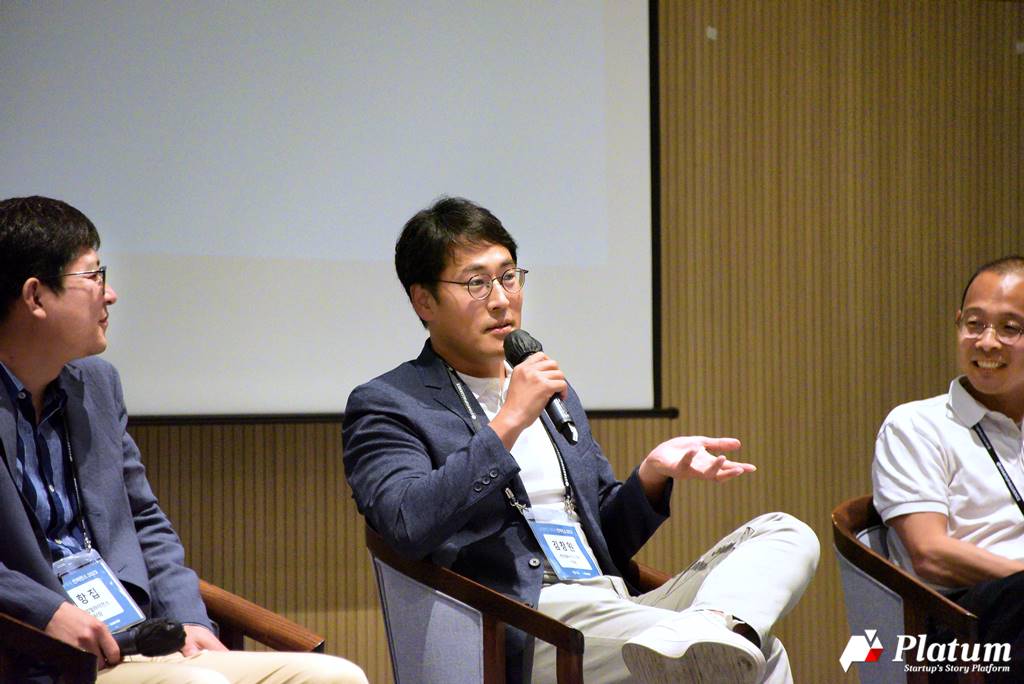
Chang Kim, former CEO of Tapas Media @Platum
Chang Kim, founder of webtoon platform Tapas Media and angel investor, commented on the US startup ecosystem: “Even in the US, which accounts for half of the global startup investment, the fund size in 2022 decreased by about 30-35% compared to 2021. This is partly due to the lack of fundraising, but also due to the lack of investment attempts.” “The startup ecosystem was founder-centric until 2021, but now it’s investor-centric. The number of unicorns and exits has also decreased. SPAC (Special Purpose Acquisition Company) listings used to be a hot topic, but now they’re almost non-existent. However, there are areas that are taking center stage. For example, SaaS investments are on the rise.
“Early-stage companies don’t seem to be getting hit very hard. I see good early-stage companies getting funded without too much difficulty, and later-stage companies that are compelling are still getting funded, albeit at a lower valuation. However, Series A stage companies are having a harder time. This is because investors are looking at things differently than they used to. It used to be that you could hit a certain number and get funded, but now you have to go way beyond that. The market has changed and the numbers we used to learn are no longer meaningful. But I think it will start to recover next year. There are a lot of companies waiting to go public right now. There is still hope,” he said.
In addition to Silicon Valley, Mr. Kim sees the Los Angeles area as a good place for Korean companies to expand. “LA is one of the best markets for Korean companies to enter, especially with the strength of a network like the Korean community. Especially if you’re a startup thinking about expanding to the U.S., you should take advantage of the local Korean-American network.”
Also, if you’re thinking about going global, take a page from Israel’s playbook, he said. “As a side project, I’m going to start a small fund with an Israeli colleague. The idea is based on what I’ve seen and learned from the Israeli startup ecosystem. We have one company listed on the NASDAQ, while Israel has 83. When we think about going global, it doesn’t make sense to compare ourselves to the US. We have to look at the Israeli model.”
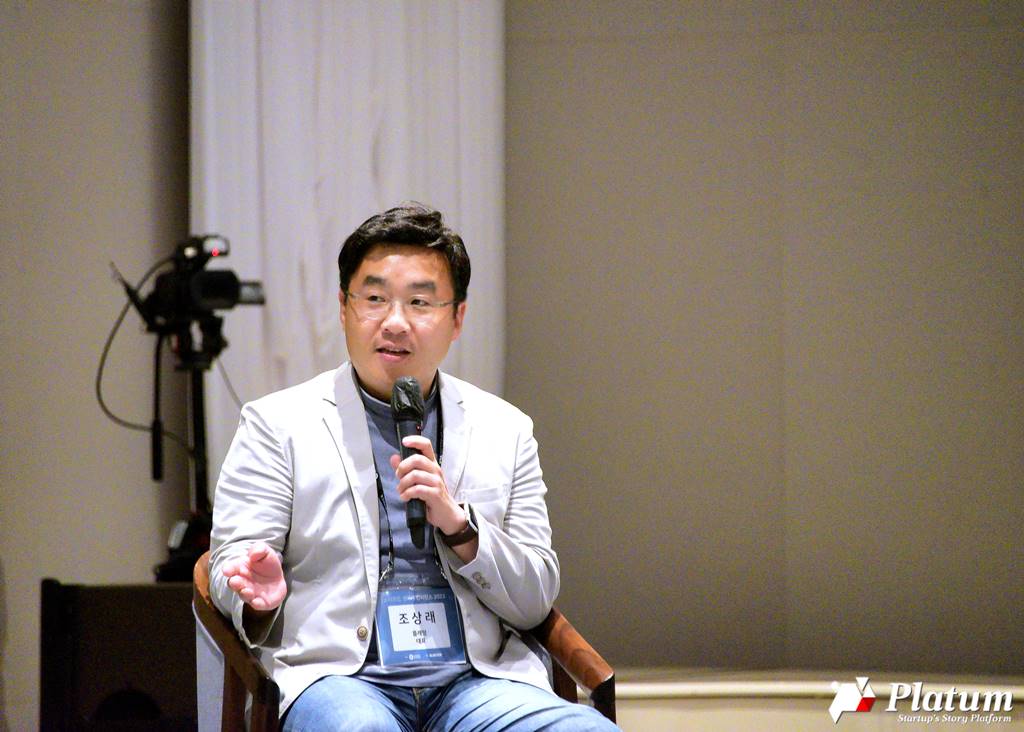
Sang-Rae Jo, CEO of Platum ⓒPlatum
Sang-Rae Jo, CEO of Platum, explained the Chinese startup ecosystem, saying that long-term risk management is necessary.
He said, “In February 2023, the Chinese government unveiled ‘Building a Digital China,’ which amounts to a national digital strategy master plan. While the strategy emphasizes that China’s modernization in the digital age is the basis for new competitive advantages, it also implies that the government will be able to see data flows, which could restrict companies’ activities.”
“China’s startup ecosystem is diverse, and the proportion of government investment in startups is increasing. In particular, there has been a lot of mobility-related investment recently,” he said. “With the recent deterioration of Sino-US relations, there is a trend to list on China’s STAR market (科創板) or the Hong Kong Stock Exchange.”
According to Jo, “If startups are considering entering the Chinese market, they need to take a long-term view of risk management. Global companies often treat and approach the Chinese market separately.”
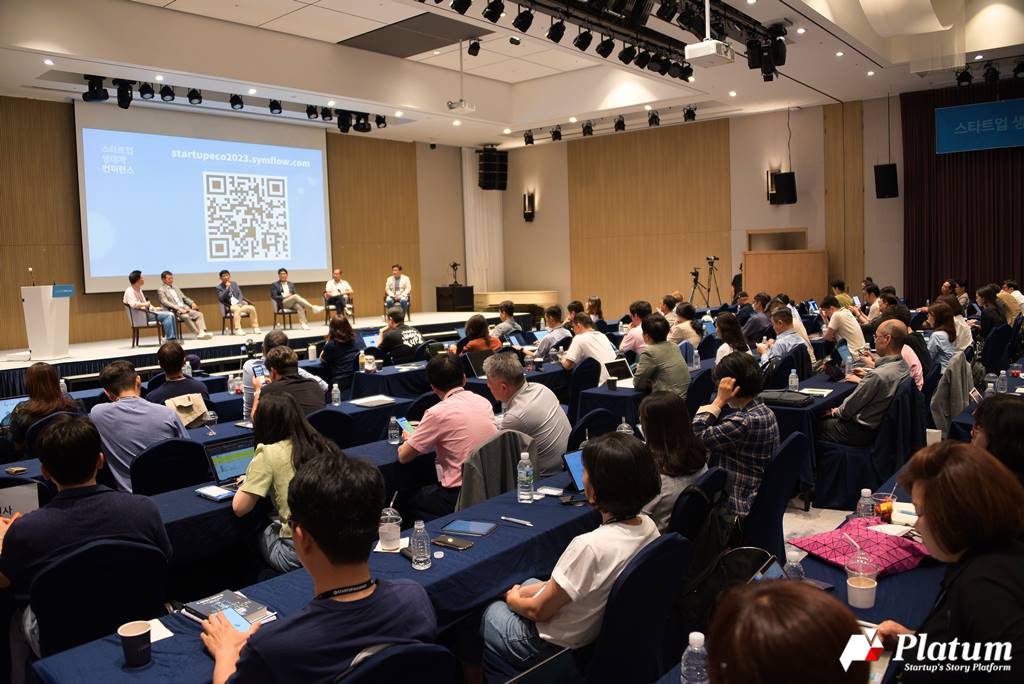
On-site at Startup Ecosystem Conference 2023 ⓒPlatum
Meanwhile, the Startup Ecosystem Conference, organized by Startup Alliance, celebrated its 8th edition this year. The 2023 event was attended not only by major investors such as domestic and foreign venture capitalists (VCs), accelerators (ACs), and CVCs, but also by officials from public organizations and universities in Jeonbuk Province, showing that it has become an important event for startups in Korea.
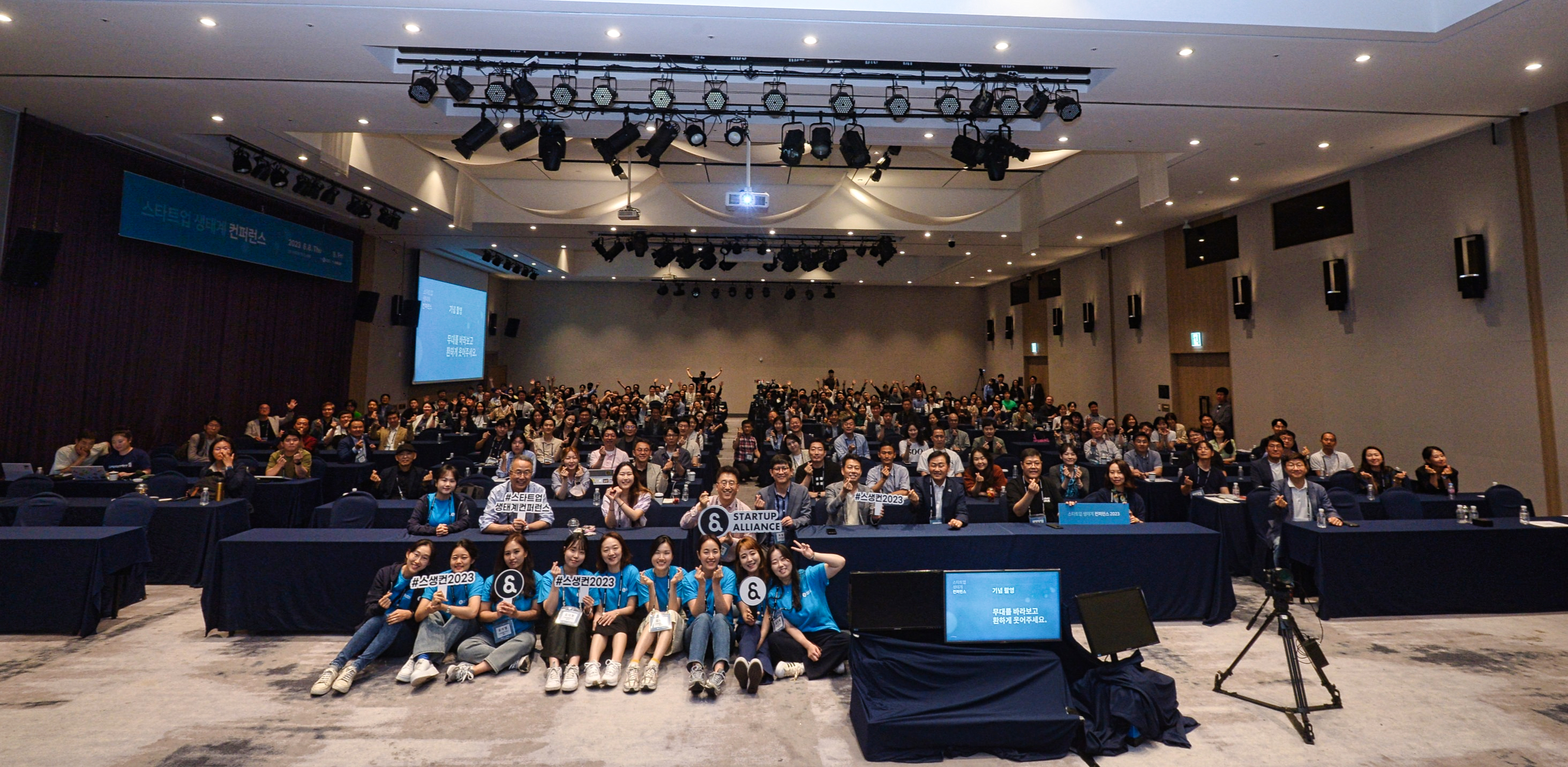
| 원문링크 | https://platum.kr/archives/208879 |
|---|